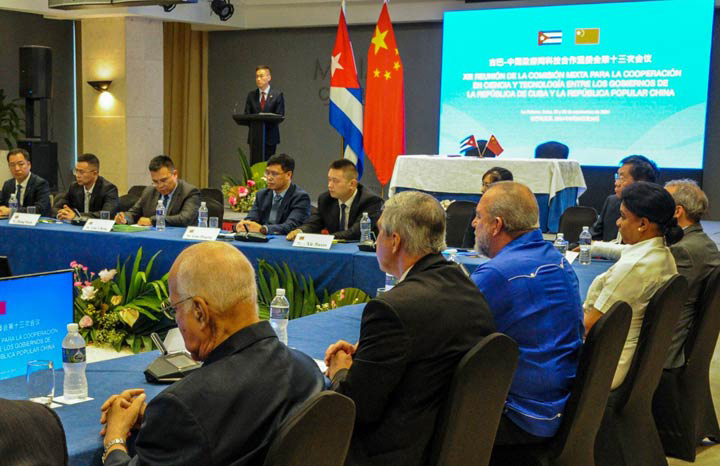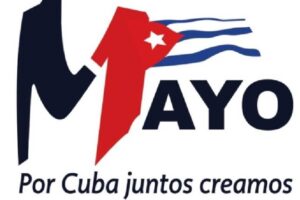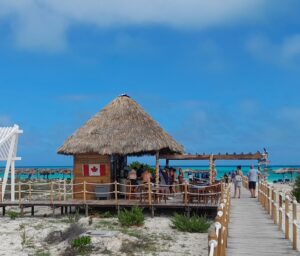The sessions of the 13th Meeting of the Joint Commission for Cooperation in Science and Technology between the governments of Cuba and the People’s Republic of China (PRC) in the capital this week were a revealing event of the mutual links in this sector and, above all, the need to increase them.
A demonstration in this sense consisted in the fact that Eduardo Martínez Díaz himself, Minister of Science, Technology and Environment (Citma), confirmed that the model of joint collaboration is at the right time to expand it and move on to a higher stage with the aim of obtaining specific results that will have an impact on the development of their nations.
Hua Xin, Chinese ambassador accredited in Havana, agreed with the Cuban head of state when speaking at the meeting, in the presence of Manuel Marrero Cruz, member of the Political Bureau of the Central Committee of the Communist Party of Cuba and Prime Minister.
In similar terms, Long Teng, Vice Minister of Science and Technology of the DPRK, who headed the visiting delegation to the event, described the level of bilateral relations and the existing close cooperation as high, and stressed the importance of the meeting to strengthen the growing ties in such vital areas of knowledge.
In their deliberations, their representatives agreed to increase scientific and technological cooperation in molecular immunology and neurosciences, and expressed their commitment to improve their public health emergency preparedness and response capabilities, in particular to address non-communicable diseases.
They welcomed the impact of the joint research projects of Round 1, implemented from 2022 to 2024, and agreed to foster exchanges between young scientists and technicians, through webinars and other modalities.
In turn, the Cuban delegation reaffirmed its interest in expanding existing working relations with other groups in that Asian country, including the Chinese Academy of Sciences, through the forthcoming signing of a memorandum of understanding.
The Cuban delegation also reaffirmed its interest in expanding existing working relations with the National Natural Science Foundation of China, with the aim of including its science, technology and innovation centres and entities in the Chinese government’s initiative for the development of the Belt and Road, an international initiative of the PRC to improve existing trade corridors and create new ones, whose initial objective is to build infrastructure and connect Eurasian countries.
He advocated for his Advanced Study Centre to be granted the status of a joint Sino-Cuban laboratory of the Belt and Road in nanosciences and nanotechnology, based in Cuba.
Long Teng, Vice Minister of Science and Technology of the PRC, and his Cuban counterpart Armando Rodríguez Batista, signed the final minutes of the 13th Meeting of the Joint Commission, in the presence of Vice Prime Ministers Inés María Chapman Waugh and Ricardo Cabrisas Ruiz.




